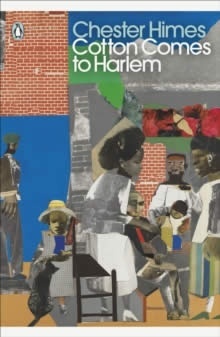Cotton Comes to Harlem

Editorial Penguin UK
Colección Modern Classics, Número 0
Fecha de edición marzo 2021
Idioma inglés
EAN 9780241521090
250 páginas
Libro
encuadernado en tapa blanda
Dimensiones 129 mm x 198 mm
Resumen del libro
A preacher called Deke O'Malley's been selling false hope- the promise of a glorious new life in Africa for just 1,000 a family. But when thieves with machine guns steal the proceeds - and send one man's brain matter flying - the con is up. Now Grave Digger Jones and Coffin Ed mean to bring the good people of Harlem back their 87,000, however many corpses they have to climb over to get it.
Cotton Comes to Harlem is a non-stop ride, with violence, sex, double-crosses, and the two baddest detectives ever to wear a badge in Harlem. With a new Introduction by Will Self.
Biografía del autor
Chester Himes, in full Chester Bomar Himes, (born July 29, 1909, Jefferson City, Mo., U.S. died Nov. 12, 1984, Moraira, Spain), African-American writer whose novels reflect his encounters with racism. As an expatriate in Paris, he published a series of black detective novels.<br><br>The domination of his dark-skinned father by his light-skinned mother was a source of deep resentment that shaped Himes's racial outlook. The family's frequent relocations, as well as the accidental blinding of his brother, further disrupted his childhood. Himes attended Ohio State University. From 1929 to 1936 he was jailed at the Ohio State Penitentiary for armed robbery, and while there he began to write fiction. A number of his stories appeared in Esquire and other American magazines. After his release from prison, he worked at numerous odd jobs and joined the Works Progress Administration, eventually serving as a writer with the Ohio Writers' Project.<br><br>His first novel, If He Hollers Let Him Go (1945), details the fear, anger, and humiliation of a black employee of a racist defense plant during World War II. Lonely Crusade (1947) concerns racism in the labour movement. Cast the First Stone (1952) portrays prison life, and The Third Generation (1954) examines family life.








